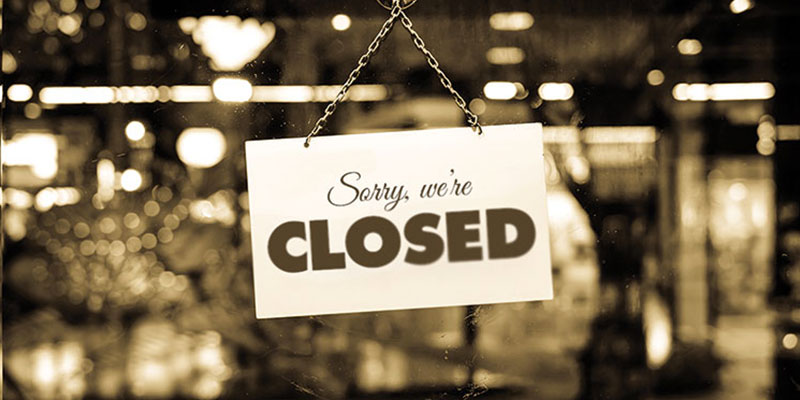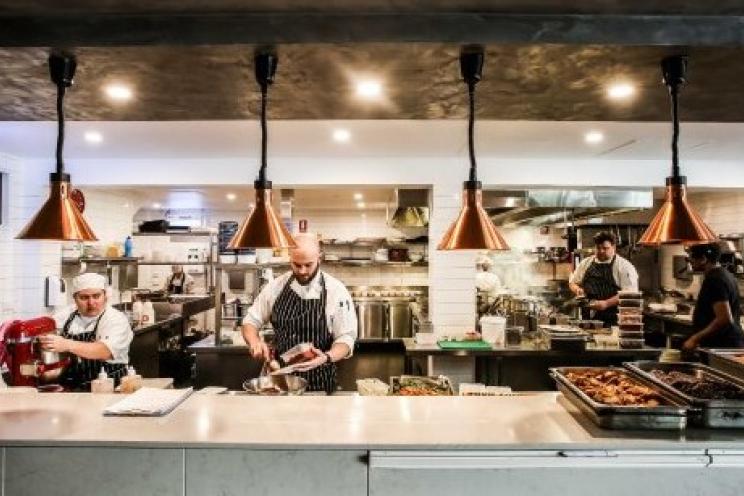
5 common mistakes to avoid when opening a new restaurant
You’ve been wanting to open a restaurant forever now.
You started brainstorming all the details, the concept and how it’s going to look when it’s full of guests.
With all the excitement, you can’t ignore the thorough preparation and business plan that should include all of your expectations for your business.
The first few years of your new venue are surely very critical since 27% of new restaurants fail after the first year and after the three years 50% of these new restaurants no longer exist.
Whether the failure comes within the first year or the coming few years, you’d want to avoid it.
Common mistakes to avoid when opening a restaurant
Financial flaws
You might get caught up in spending too much which decreases your capital and shortens your survival period for the first few months where you’re breaking even mostly.
You might even spend a big part of your capital and have a shortage to complete all of your opening plans.
So it’s either you delay your opening or you doom yourself to failure.
In addition to losing your capital you might simply lose track of your financials after the opening including your expenses, your revenues and your cash flow.
Having enough cash to support your business the first 6 to 12 months is crucial and tracking your POS reports to monitor the sales and expenses on weekly basis at least for the first few months helps you avoid your financial struggles.
Make sure you also put a budget according to your cash flow or needed sales.
Everything in your business is trackable with a good system. Study every aspect of your analytics to stay on top of your finances from inventory, expenses, food costs, labor costs to revenues.
Ignoring the marketing / social media strategy
80% of customers search a restaurant before visiting, so you can’t miss this opportunity to reach customers especially at the beginning of your business when you’re still building your customer base.
Build a social media strategy and create ads prior to your opening to spread the word about your business especially on instagram where you can post delicious pictures of your menu items.
Not knowing your targeted customers
The main point that should be present in your business plan is the value that you will be adding to the market represented by your customers.
This point defines everything that comes after from the menu platters, the location to the concept.
That’s why it’s crucial to identify your target market. Based on it, you will identify which options to serve and the prices in addition to the concept.
This point also defines your differentiation position among your competition and defines the way you market and sell yourself to investors, if any.
Poor hiring and training
Your employees are your backbone and they help you build your reputation.
You cannot just randomly hire people to serve your guests.
Your values should align with your employees beliefs and values.
Your hiring process should be perfect from your head chef, your chefs, your manager to your waiters and bartenders.
You cannot ignore the onboarding process and the training as well to prepare your staff for their duties.
That’s why you need an onboarding and training plan for your new staff where you explain everything to your staff and it’s advisable to cross train your employees as well.
Once you attract the right people, it’s your job to retain them through transparent communication and a healthy work environment.
Provide them with a good pay scheme as well to decrease turnover rates.
Ignoring technology
When you have everything figured out for your restaurant, it’s time to choose your software companion.
A POS software is the one who’ll get your back in all your operations from inventory management, kitchen management, labor management, accounting, sales forecast and floor management.
To kickstart your business successfully and sustainably, don’t hesitate to get a reliable software that upgrades your overall performance.
It might be costly at the beginning, but in the long run your business will thank you for it and you will save yourself time and money.
Opening a restaurant is surely exciting and rewarding but at the same time, it’s risky so you have to weigh its different aspects to decrease your failure chances.





